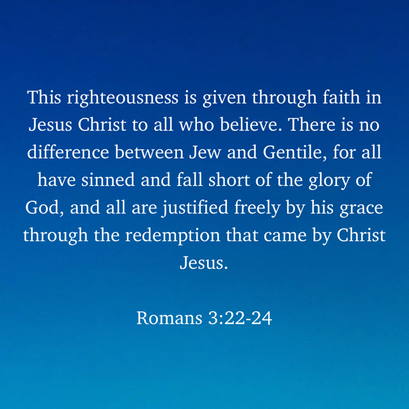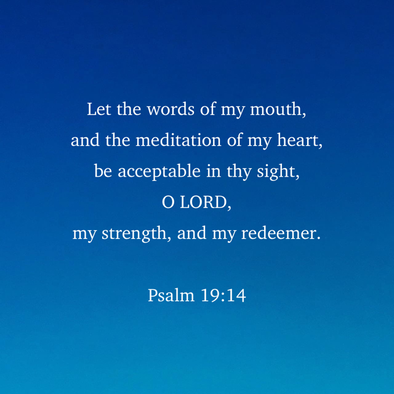|
Good morning! We're so glad you decided to join us today! When we meet in person, we share our joys and concerns. Take some time to think about the past week, and the joys and concerns you have. Again, as we are in the season of thanksgiving, consider what you have been thankful for. If you would like, you can share by commenting on this post. When you are ready, use the prayer below (source) to get started. Loving Lord, As I express my gratitude to you in prayer, may it be a pleasing, joyful sound to you. Thank you, Lord, for your love. It brings me acceptance and significance. Thank you, Lord, for your truth. It brings me guidance and direction. Thank you, Lord, for your mercy. It brings me help and comfort. Thank you, Lord, for your faithfulness. It brings me stability and strength. Thank you, Lord, for your beauty displayed in the earth. It brings me joy and delight. Thank you, Lord, for your way of redemption - the cross. It brings me salvation and regeneration. Amen. Today's lesson is on Revelation 19:1-8. Lesson Context As we have discussed for the past several weeks, the language in the book of Revelation is figurative. This doesn't mean "not real" or "fictional." Instead, it means to express one thing in terms of another. Our book notes that figurative language can be challenging to interpret. This occurs both in Jesus' parables and the book of Revelation. However, in the parables, Jesus often identified the references in his parables later. The apostle John almost never does that in Revelation. Today's passage has a rare exception. In today's lesson, the figurative language focuses on Babylon. The actual city of ancient Babylon was very powerful during the sixth century BC. By the time of the first century AD, around the time this passage would have been written, Babylon would have been basically non-existent. In John's vision, Babylon symbolizes the worldly powers that oppose God and his people. Some scholars propose that, for John's audience, Babylon was a code word for the city of Rome. The rulers of both cities oppressed the people of God and opposed God's rule. The Babylonians had been God's instrument in punishing Judah. But the Babylonians went too far and ended up as objects of God's wrath in turn. Babylon experienced divine wrath for opposing God in both word and deed. Similarly, the Roman Empire was insatiable in its conquests as it swept across the Mediterranean world of the first century AD. Palestine had begun to experience Roman might in 63 BC, when Pompey besieged Jerusalem. The Jewish revolt of AD 66-70 resulted in the sacking of Jerusalem and the destruction of its temple. John wrote the book of Revelation some 25 years afterward. Prior to today's passage, Revelation 18 sketches a lengthy celebration of the downfall of Babylon, rehearsing charges against it. That prophetic text guarantees, by extension, the ultimate downfall of all kingdoms and entities that oppose God. Today's passage takes us to what happens after the collapse of those foolish opponents. Lesson Our scripture picks up after the announcement of the judgment and destruction of Babylon in the previous chapter. A great multitude, a huge crowd, of the redeemed speaks in unison. These crowds are praising God. "Hallelujah!" Remember, this comes from Hebrew: “hallelu” (meaning to praise) and a shortened form of the word for Yahweh, “jah”. The multitude then gives a litany of divine action and attributes. This might serve as something of a model for our own prayer practices, either alone or in corporate worship. We too can praise God for his attributes and how he works out our salvation. The "great prostitute" in verse 2 refers to Babylon. One of Babylon's two great sins is that she "corrupted the earth by her adulteries." As used by the Old Testament prophets (for example: Jeremiah 3:6-9; Ezekiel 23:36-37), the figure of speech describes idolatry. The second of Babylon's two great sins is persecuting God's servants to the point of death. This will be the "blood of his servants" avenged on Babylon. John's audience would have seen a connection to the Roman Empire. The great crowd in heaven continues to shout in praise: "Hallelujah! The smoke from her goes up for ever and ever." God is truly victorious and thus truly worthy of praise. The destruction of the great prostitute (or Babylon, or the Roman Empire) is not temporary. It is permanent and final. The extra, "and ever" just serves to cement the certainty of the eternal reign of God and the eternal nature of his kingdom. John's vision echoes similar language from the prophet Isaiah, where God's judgment on the land is described as "burning" and where "its smoke will rise forever," (Isaiah 34:9-10). A second declaration of worship comes, this time from the twenty-four elders and the four living creatures. They surround God's throne as the inner circle of those in the presence of the Almighty. Their united acclamation of worship consists of just two words: Amen and Hallelujah. The combined effect is to affirm the praise of the great crowd and repeat its central message: Praise the Lord! A voice comes from the throne. The throne itself always refers to the presence and authority of God. Even so, our book says the voice is likely not from God or from the Lamb. It is uncertain whether it is from an angel herald or another entity. What is important is that the voice has divine authorization to call for worship. The form of worship demonstrated here differs slightly from previous exclamations. Rather than the command, "Praise the Lord," this version exclaims, "Praise our God." This echoes the commands of Psalm 66:8, "Praise our God, all peoples, let the sound of his praise be heard." John hears yet another voice, this time only described in similarity to a great multitude. However, this seems to be another, different, group than we have encountered before. The sound is like a thunderous waterfall or the crashing of stormy waves on a beach. The word translated thunder in verse 6 occurs ten times in the book of Revelation. The word is always associated with divine power, authority, and/or initiative. Its use in the verse at hand alongside the sound of water bears strong similarity to the prophet's vision in Ezekiel 1:24; 43:2. God's actions are often grouped under three headings: he creates, he rules, and he redeems. The text we've been reading speaks of the second: he rules. In that light, the praise is for the universal kingship of our Lord God. Older version of the Bible include the word "omnipotent" instead of Almighty. Verse 6 introduces us to one of what might be called "the three omnis." The word omnipotent means all-powerful. The others are omnipresent, meaning present in all places at all times, and omniscient, meaning all-knowing. Finally, we get to the moment the faithful had been waiting for: the time and occasion when the faithful servants of God see their eternal, heavenly fellowship with their Savior, Jesus Christ, finalized. The wedding language we see here was not unfamiliar to John's original audience. Old Testament prophets often used marriage as a figurative reference to describe the relationship between God and his people (examples: Isaiah 54:5-7; Hosea 2:19). Jesus, too, described the kingdom of heaven in terms of a marriage (Matthew 22:1-14; 25:1-13). In this wedding, the Lamb is the groom. The idea of Christ as the sacrificial lamb lies at the very heart of our redemption and salvation. The bride of Christ is the church: holy ones sanctified by the work of the Holy Spirit. Conclusion Weddings are designed to create memories and ingrain those memories in the minds of those who attend. Therefore, the wedding party's clothes are normally chosen with great care and coordinated for maximum effect. It may take hours to get ready for the ceremony. Everyone goes to great lengths to ensure that everything is "perfect." The wedding ceremony between the Lamb and his bride culminates in the rescue of the bride from the power of sin and evil. When Jesus, the Lamb, receives his bride, the church, it will be the wedding for all time! The groom has done his part by paying the price for sin on the cross. But the bride has her part to do as well, considering John's statement that she has "made herself ready" (Revelation 19:7). Jesus has provided us with "garments of salvation" and a "robe of righteousness" (Isaiah 61:10), but we must put them on. Prayer Praise to you, God most high! Glory to you, Lord of Heaven and earth! Thanks be to you for your gracious gift of Jesus, your Son and our Savior. May our hearts give praise to the King of kings and Lord of lords. In Jesus' name we pray. Amen. Questions to Consider What lifestyle changes might result from your focusing on descriptions of God (such as in Revelation 19:1) regularly in prayer? What are some ways you can get and maintain momentum in that type of prayer? What personal lifestyle change do you need to make when thinking about fearing God so that your practice matches your profession? While this is usually an Advent or Christmas hymn, it came up when I searched for hymns related to today's scripture. Pay attention to the last verse. Benediction Today's benediction is from the New International Version. Next week's lesson will be on Acts 10:34-47.
0 Comments
Leave a Reply. |
AuthorWe are a small, rural Presbyterian church in southwestern Pennsylvania. Archives
July 2024
Categories
All
|



 RSS Feed
RSS Feed